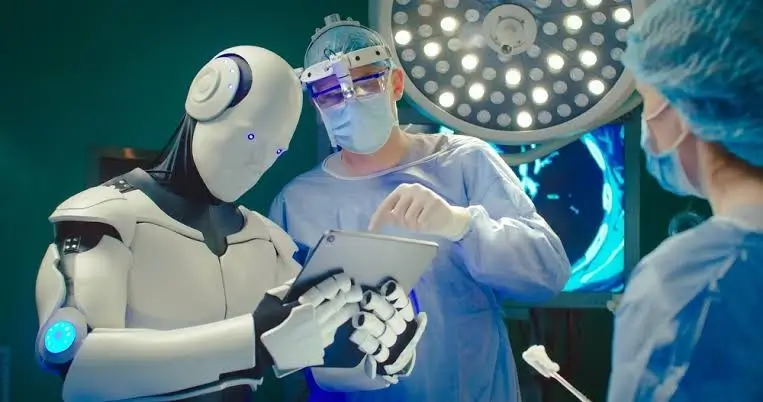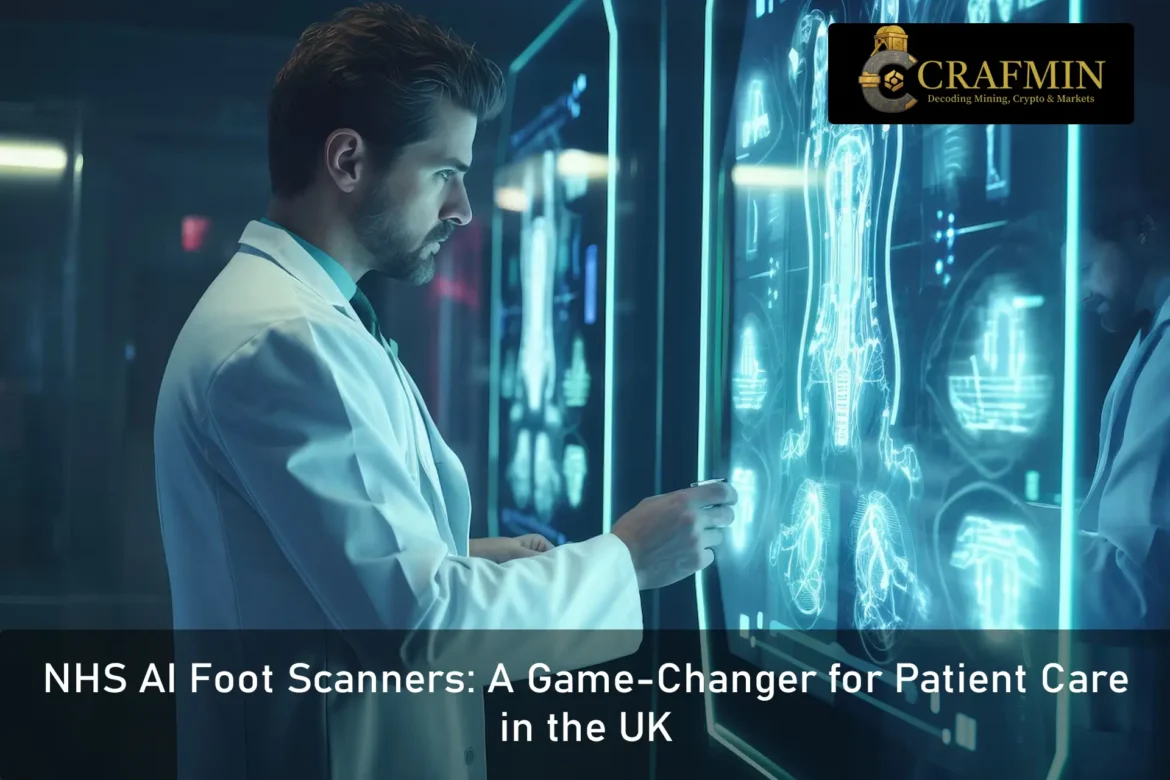The National Health Service (NHS) is ushering in a new era of smart healthcare with the nationwide rollout of AI-powered foot scanners. Designed to detect medical issues before symptoms arise, this cutting-edge technology is redefining early diagnostics and enhancing patient outcomes—especially for individuals at risk of foot complications.
Currently being introduced across multiple NHS trusts and clinics, these AI scanners promise faster, more accurate diagnostics without the need for invasive procedures or lengthy hospital waits. In a system already under significant strain, this innovation represents a meaningful shift toward smarter, more efficient patient care.

NHS rolls out AI foot scanners for faster, smarter checks (Image Source: Innovation News Network )
How NHS AI Foot Scanners Work
These advanced scanners use artificial intelligence to analyse pressure and thermal images of the feet. A patient simply steps onto the device, which then creates a detailed scan within seconds. The AI algorithms are trained to detect signs of poor circulation, nerve damage, and early-stage ulcers—conditions that frequently go unnoticed until they become serious.
The immediate sharing of results with medical teams allows for prompt clinical action, drastically reducing the time between diagnosis and treatment. This quick turnaround is especially crucial for patients with diabetes or vascular conditions, where early intervention can prevent hospitalisation or even amputation.
Step, scan, detect: NHS foot scanners spot issues instantly ( Image Source: Sky News )
Prioritising Diabetic Care
For the over 5 million people living with diabetes in the UK, foot health is a critical concern. Unnoticed ulcers or reduced blood flow can quickly escalate into serious complications. The NHS AI foot scanners are proving particularly beneficial in diabetic clinics, where they are already being used to identify risks early and reduce the chance of long-term damage.
This initiative is not merely a technological advancement—it’s a strategic intervention aimed at saving lives and reducing healthcare burdens through proactive care.
Digital Diagnostics and the NHS Tech Evolution
This scanner rollout is part of a broader digital transformation in UK healthcare. Over the past year, the NHS has embraced artificial intelligence in medicine, deploying AI in cancer detection, triage systems, and radiology to streamline services and reduce human error.
Unlike bulky or high-cost machines often reserved for hospitals, these foot scanners are compact, affordable, and easy to use in various healthcare settings. Their accessibility ensures that frontline staff are better supported and that patients benefit from timely diagnostics, regardless of where they’re being treated.
Bringing High-Tech Tools to Local Communities
One of the most significant benefits of this initiative is its decentralisation. These scanners are not limited to large hospitals; they’re being placed in GP practices, community health centres, and even rural clinics.
This ensures equal access to digital diagnostics, helping bridge the gap between urban and underserved regions. Early detection becomes possible even in areas where medical resources are traditionally limited, allowing issues to be addressed before they become emergencies.
The result? A more equitable healthcare system built on prevention rather than crisis response.
Smart Tech, Human-Centred Care
While artificial intelligence may be the driving force behind these devices, the human element remains central. Medical professionals still interpret the data, tailor treatment plans, and provide emotional care—what the scanners offer is a faster, more reliable foundation on which clinicians can build.
The goal is not to replace clinicians but to empower them with tools that reduce guesswork and improve accuracy. In this way, technology serves as an assistant rather than a substitute—working quietly in the background to enhance care quality.
Why It Matters: The Future of UK Healthcare
The introduction of NHS AI foot scanners is more than a technical upgrade—it’s a clear indication that the healthcare system is serious about modernisation. With increasing demands, an ageing population, and chronic conditions on the rise, innovative tools like these are no longer optional—they’re essential.
The NHS’s decision to embrace this technology speaks to a larger shift in strategy: one focused on prevention, efficiency, and patient-centred care. It’s a vision of healthcare that is not only technologically savvy but also compassionate and inclusive.
Final Thoughts
The rollout of NHS AI foot scanners marks a pivotal moment in UK healthcare. By blending intelligent technology with the trusted human touch of NHS practitioners, this initiative offers a glimpse into the future—one where diagnostics are quicker, treatment is timelier, and care is more personalised.
For patients, especially those managing chronic conditions like diabetes, this development could significantly improve quality of life. For clinicians, it offers a much-needed support system to manage increasing caseloads with precision and speed.
As these devices become more widespread, expect to see better patient outcomes, fewer avoidable complications, and a stronger emphasis on preventative care. In a challenging healthcare climate, the NHS is choosing progress—and that’s a step worth celebrating.

